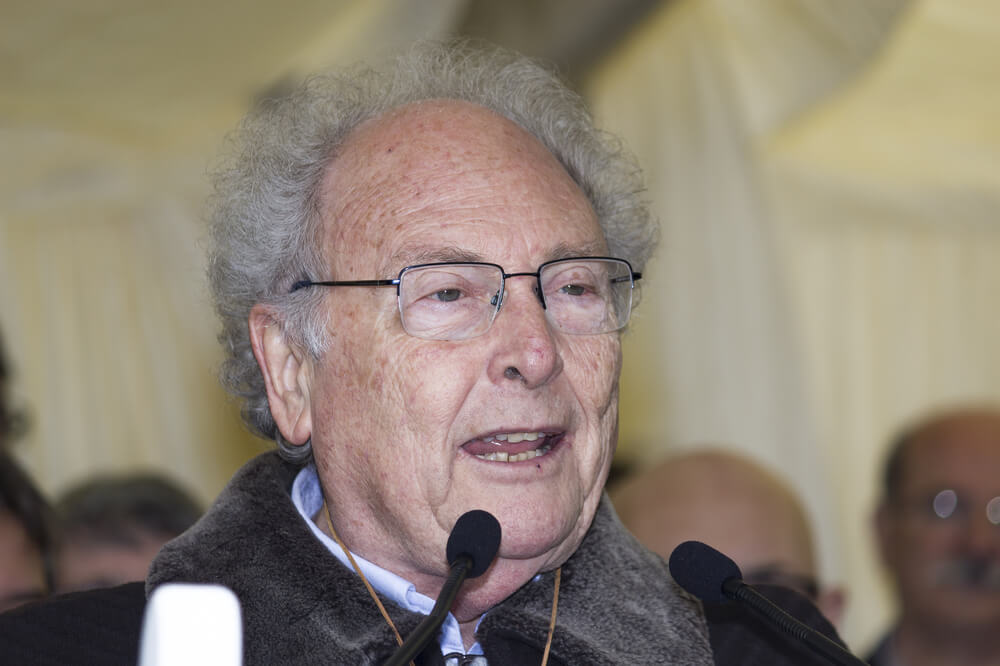Controversial, charismatic and innovative. The figure of Eduardo Punset was, for many, the first approach to science.
Lawyer, writer, economist, politician and science spreader. It is thanks to its program Redes, broadcast for almost two decades, that millions of Spaniards have come to the confusing branches of science for the first time. So Punset was many things, but there is no doubt that, above all, he was and remains a great promoter.
- In a way.
- This has helped science reach Spanish homes.
- This strange.
- Boring and incomprehensible object of study has become.
- In a way.
- Something fun and enjoyable.
Punset plays with the curiosity of his audience, simplifying what seemed difficult and making him attractive, something that, at the same time, earned him a lot of criticism. In addition, the audience began to confuse the figure of Punset with that of a scientist. when it’s not really his specialty.
His life has always been far from the most typical topics of his time and his work could not be different. A character with strong political convictions and a great desire to give the world the most current and radical visions.
Eduardo Punset always bet on the most provocative new technologies and scientific theories, of course, he always bet on taking him into the world, in this he was an excellent teacher.
Eduardo Punset was born in Barcelona in 1936, the son of a rural doctor from Tarragona, from a very young age he showed a great interest in the world of knowledge, to study, to know, always showed great concern for the world in general and wanted to find out.
Eduardo Punset traveled to Los Angeles in the 1960s to study at North Hollywood School, where he learned English. Returning to Spain, he graduated in Law from the Complutense University of Madrid and joined the Communist Party, still under a dictatorial regime.
At that time he met Jorge Sempron, due to the problems caused by the dictatorship, Punset decided to go into exile and continue his studies abroad; speaking English, he was able to travel to London and continue his postgraduate studies in economics. He traveled to France, where he graduated from the Paris School of Advanced Studies.
Shortly after completing his studies, Eduardo Punset worked as an economic editor for the BBC, was economic director of the weekly Latin American edition of The Economist and developed, for a time, his work as an economist for the International Monetary Fund in the United States. States and Haiti, with Franco’s death, Eduardo Punset returned to Spain and bet on politics.
He was elected Advisor of Economics and Finance of Catalonia by the Centristas of Catalonia-UCD. He developed a very important task to open Spain to the outside world when he was Minister of Relations with the European Communities in the 1950s.
Subsequently, he was elected an MEP by the UCD and then as an independent; during his time in the European Parliament, he oversaw part of the process of economic transformation in Eastern European countries following the fall of the Berlin Wall, following several more attempts. In politics, he finally decided to leave it in 1995.
During the second stage of his life, Punset devoted countless efforts as an expert on impact issues and new technologies, being an international marketing professor at ESADE. President of the Instituto Tecnológico de Toro and professor of science, technology and society at the Faculty of Economics of the Chemical Institute of Sarrio of Ramon Llull University.
In addition, Punset has developed consultancy work in important sectors and companies, and has written several books on economic and social analysis.
In 1996 Redes was born, a scientific communication program that will mark the history of his brilliant professional career. During its 18-year existence, Punset has interviewed prominent figures from the world of science and technology during the 600 episodes aired.
The program addressed many topics, and did so in such a way that the world of science was for the first time accessible to unskilled citizens, from this series of programs have emerged chapters that can be considered incredible works in the dissemination of neuroscience, positive psychology, new technologies in education, psychology of emotions and many other fascinating topics. Many of the books he has written are also from this stage.
She is one of the most respected and equally criticized voices in Spain, but there is no doubt that during her television career she aroused the curiosity and scientific vocation of many people.
A brave man who bet on innovation, both in technology and in his ideas, a person who has been able to translate the most complex scientific concepts into a common language to make them accessible to a large part of the population, merit that few can carry with them.

